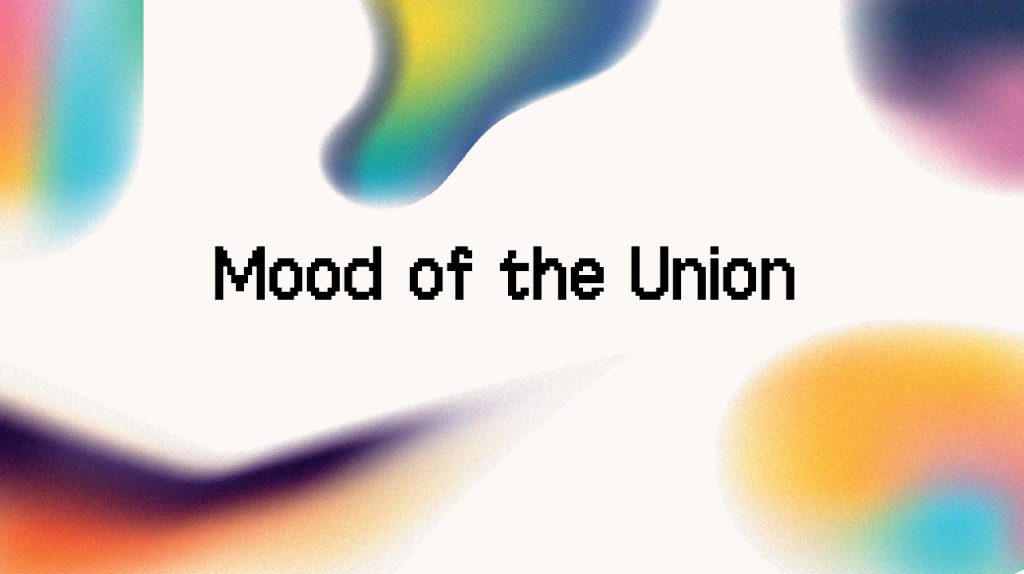Mood of the Union 2024
The European Parliament elections on 9 June are a referendum on EU policy since 2019. Will voters give Europe the green light for further progress, or pull the brakes? A new Eurozine series measures the political atmosphere in the EU and its neighbourhoods at this crucial moment.
Since the 2019 European Parliamentary elections, the European Union has achieved significant progress, while navigating a sea of unprecedented challenges. Forward-thinking policies have been adopted and implemented in many areas of common interest, placing the EU at the forefront of global legislative innovation.
The landmark Green European Deal positions the EU to become the first climate neutral continent by 2050 and has sparked global conversations about climate and environmental transformation. The EU is also leading the way in regulating technology: the recent AI Act provides world-first rules on artificial intelligence and big tech – a move likely to instigate similar policies in other parts of the world.
However, the path has been strewn with obstacles. The COVID-19 pandemic put the EU and the rest of the world on hold for two years, while Russia’s full-scale invasion of Ukraine has prompted critical introspection about Europe’s defence capabilities. The transition away from Russian energy sources has led to soaring prices, exacerbating inflation already heightened by the pandemic.
All this has created discontent amongst large parts of the European population, whose standards of living have been decreasing since 2019. The mood of uncertainty has fomented a wave of strikes and protests and bolstered support for the far-right. Some complain not just about the costs of living, but also that progressive policies like the Green Deal do more harm than good.
Younger demographics, including the climate activists whose increased participation ushered in progressive forces to the European Parliament in 2019, express disillusionment with the EU’s failure to enact bolder reforms. Their potentially diminished presence in the elections on 9 June could contribute to a dramatic alteration to the political landscape that would redefining the Union’s trajectory. In April 2024, European Commission President Ursula von der Leyen did not rule out the possibility of collaborating with the hard-right European Conservatives and Reformists group (ECR).
The complexity of the EU’s current predicament cannot be overstated. From now until the elections, the Eurozine series Mood of the Union 2024 is unravelling some of the national intricacies while also delving into overarching issues. Grouping countries in regional blocs, experts measure the political atmosphere at a crucial moment for Europe and its neighbourhoods. After the elections, a further round of articles will analyse what the results mean for the key policy areas of the environment, rule of law, foreign policy and transparency.
Published 8 May 2024
Original in English
First published by Eurozine
© Eurozine / Raluca Besliu
PDF/PRINTIn collaboration with
In focal points
Newsletter
Subscribe to know what’s worth thinking about.
Related Articles

With Modi having won his third presidential term, India’s democracy remains at risk. The opposition, which made gains with underprivileged and marginalized voters, is calling his need to govern in coalition a victory. But will infighting and political misdeeds distract the Left from taking on the alliance of Hindu nationalist parties?

A changing world
EU, USA, China
From COVID-19 to economic tensions and full-scale war in Ukraine, the relationship between the EU, the US and China has undergone seismic shifts since the last European Parliamentary elections in 2019. This year’s elections on both sides of the Atlantic are likely to alter these dynamics, changing the geopolitical landscape again.






